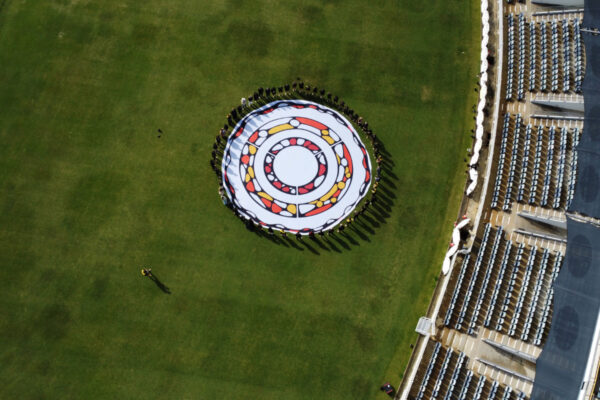
WA Cricket is proud to release its Innovate Reconciliation Action Plan (RAP), reinforcing the organisation’s vision to create a community that champions respect, belonging and equal opportunity for all Aboriginal and Torres Strait Islander peoples across WA.
Developed by WA Cricket’s RAP Working Group and the WA Aboriginal Cricket and Cultural Advisory Committee (WAACCAC), the Innovate RAP assists, consolidates and continues the solid foundation of actions completed in WA Cricket’s Reflect RAP.
The 55-page document, formally endorsed by Reconciliation Australia, covers the period of April 2024 to April 2026 and centres on implementing innovative change.
It details more than 60 actions and deliverables relating to relationships, respect and opportunities, all of which support WA Cricket’s purpose of connecting WA communities through cricket.
Additionally, the Innovate RAP outlines key learnings from the Reflect RAP and demonstrates how staff at WA Cricket have developed a deeper understanding and appreciation of Aboriginal and Torres Strait Islander cultures.
An important component of WA Cricket’s RAP is the Mandala that features on the collar of every WA and Perth Scorchers playing shirt.
Designed by Dr Richard Walley OAM and introduced as part of the Reflect RAP, the Mandala tells a story of the past, present and future of the land the WACA Ground resides on and acknowledges Aboriginal Cricket histories.
The Mandala artwork is central to the WACA Ground Improvement Project’s cultural narrative and will be incorporated into future designs of the ground.
Steven Goodall, Interim Co-Chair of WAACCAC, believes the new Innovate RAP strongly reflects the values of WA Cricket’s 2022-23 Reflect RAP.
“The WA Cricket RAP continues to be a positive step forward for cricket and demonstrates a genuine commitment to achieving positive outcomes across the wider Aboriginal community and build on what has already been achieved,” Mr Goodall said.
“The RAP program’s strength is its framework of relationships, respect and opportunities, allowing an organisation to strategically set its reconciliation commitments in line with its own business objectives, for the most effective outcomes.
“Our sport cricket is inclusive for families, friends, and the wider community and we must continue to have a positive impact on education, housing, employment and health while also allowing people to develop leadership skills.”
WA Men’s allrounder D’Arcy Short, who hails from the Mitakoodi people of Far North Queensland, has noticed a positive shift in the way his Aboriginal heritage is recognised and celebrated since the Reflect RAP was introduced.
“I think the RAP gives you a platform to talk about your culture and your story, and educate non-Indigenous people about Indigenous culture, and all coming together as one,” he said.
“You see it between the players and staff. People aren’t scared to ask questions anymore and try to find out a bit more about Indigenous cultures, whether it’s people asking me or just asking in general about different Indigenous cultures.
“It means I get to tell my story in a different way.
“That’s what the RAP is about – wanting to learn about different cultures and getting that information out there.”
Short is confident future generations of Aboriginal cricketers will benefit from the progress made through WA Cricket’s RAP.
“Even with WA doing their Indigenous Development Squads and just having a squad that trains all year round, I think that shows that Indigenous kids are wanting to get involved with (cricket),” he said.
“Hopefully we see more Indigenous cricketers coming through and wanting to play the sport.”
